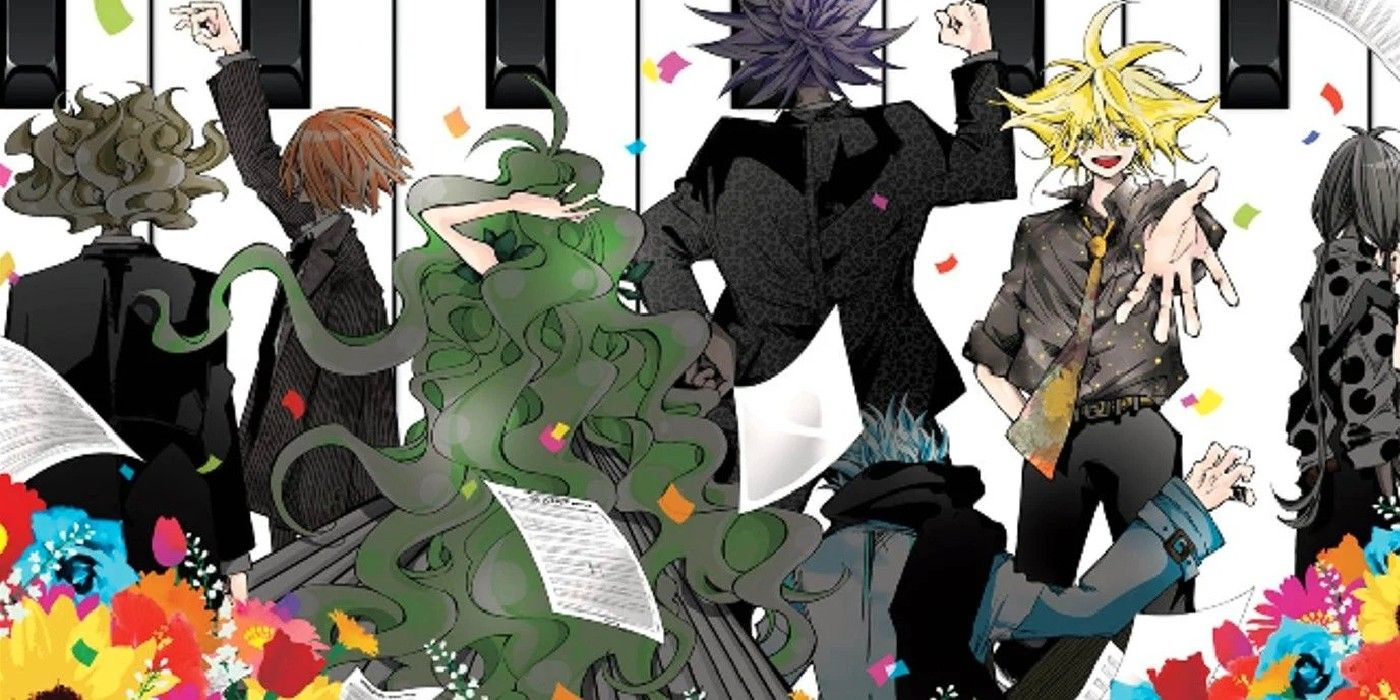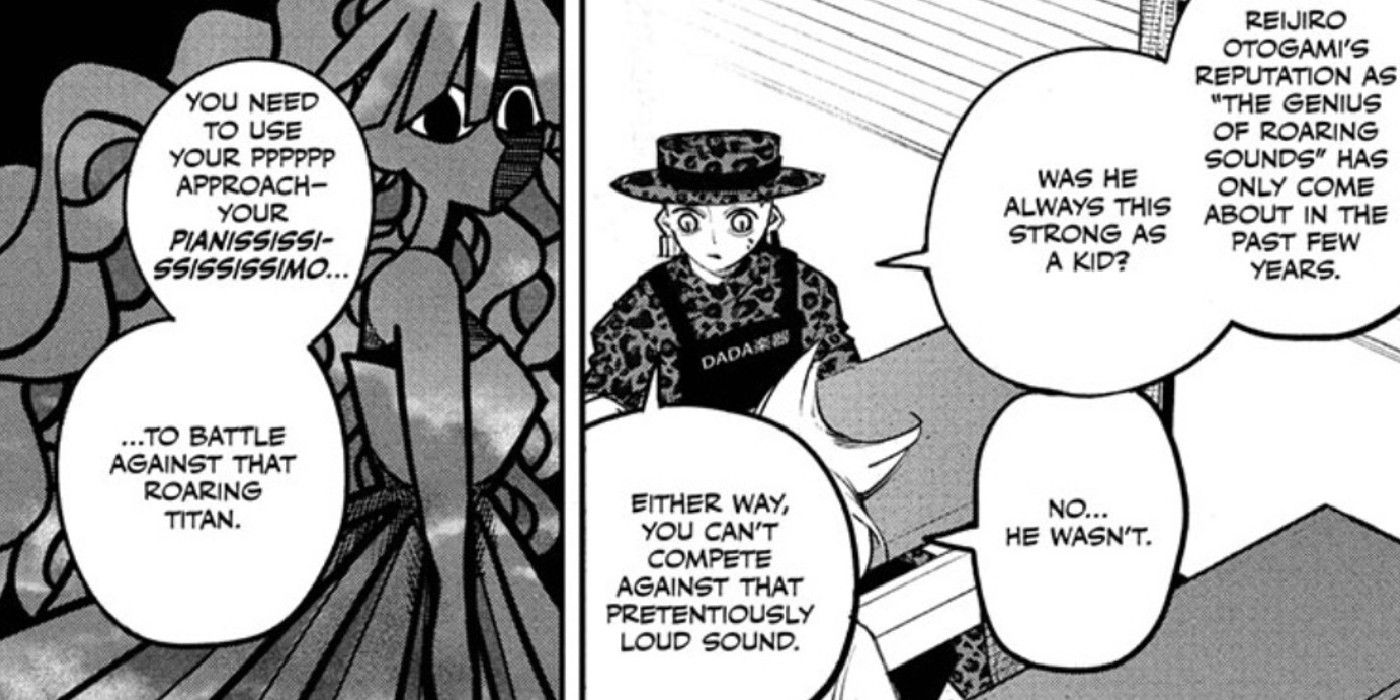Warning: spoilers ahead for PPPPPP chapter 6!
The latest chapter of Shonen Jump's PPPPPP reveals the source of the new manga's unusual name. Some mangaka are notorious for giving their series ridiculous names such as Yoshio Sawai's Bobobo-bo Bo-bobo, but in a few instances, their titles make sense once they are explained. This is even the case with Sawai's aforementioned manga, since its namesake is the eponymous hero (though this doesn't explain why he decided to call the protagonist Bobobo-bo Bo-bobo in the first case). Likewise, mangaka Mapollo 3 choosing to include six Ps in his manga's title makes sense when readers consider the fact it's about music.
In music, the symbol P is a dynamic level on how loudly musicians should play and stands for piano, which means "softly" - hence, the section of music to which the P is applied should be played quietly. The more Ps in a musical composition, the more softly the musician should play. Normally, the quietest marking is three Ps, which stands for pianississimo and means to play "very very quiet." However, some composures have used what's termed extreme dynamic markings. In fact, Tchaikovsky uses six Ps in his Pathétique Symphony, just like in Mapollo 3's series, though there are instances of even more absurd markings. Some of György Ligeti's compositions, for example, employ the use of eight Ps. In chapter 6 of PPPPPP, the main protagonist Lucky is told by his teacher to employ his typical pianissississississimo approach, which is written as PPPPPP.
The title now makes so much sense to readers who have been keeping up with PPPPPP because, for most of his adult life, Lucky has been forced to play incredibly quietly. Lucky grew up in a household of famous pianists, and when Lucky's father saw he was a failure, he abandoned Lucky and even divorced his wife. Unfortunately, Lucky's mother fell ill and spent most of her time in the hospital, so Lucky grew up with his aunt, who sided with his father and wouldn't allow him to even look at a piano. The only time Lucky played was for his mother at the hospital because it made her happy, and since he couldn't make much noise during his visits, he was forced to play quietly. As a result, even after he began defying his aunt by playing anywhere, he could never bring himself to play loudly, making it his signature sound.
However, there might be more to Mapollo 3's title than meets the eye (or ear). Lucky is a septuplet, meaning he has six brothers and sisters. Unlike himself, all of his siblings are talented pianists and have gone on to become world-renowned at their craft. Thanks to Lucky's father, they are known as sextuplets and no one is aware that Lucky is related to them. Could the six Ps not only stand for pianissississississimo but represent how the world only knows about Lucky's six sibling brothers and sisters?
Regardless, particularly shrewd readers who were already suspicious that the six Ps in the series' title meant pianissississississimo have already been looking out to see if Lucky will ultimately have to compete in musical battles with Tchaikovsky's Pathétique Symphony as it's one, if not the only, example of a musical composition with PPPPPP.


